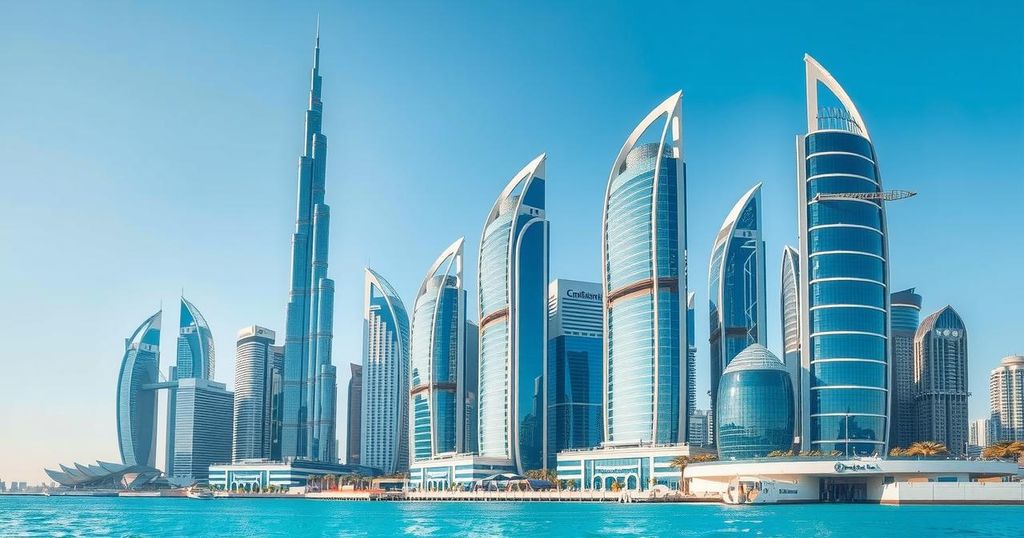Qatar, despite its small size, wields significant influence due to its wealth from oil and gas production. It supports groups like Hamas, uses media to shape public perceptions, and invests heavily in U.S. institutions. Allegations of Israeli political ties and the recent U.S. drone deal raise concerns over Qatar’s role in promoting instability in the Middle East.
Qatar, a small nation with about three million residents, stands out due to its immense wealth, being the largest per capita producer of oil and natural gas globally. Its economic status grants it political influence that surpasses that of many larger nations in the Middle East and beyond, allowing it to wield power disproportionate to its size.
The country strategically uses its financial resources, often to support Islamic terrorist organizations, including Hamas, where many senior officials are based. Operating Al Jazeera, a prominent news outlet in the region, Qatar significantly influences public opinion and political narratives across the Middle East and elsewhere.
Over decades, Qatar has invested approximately $11 billion in U.S. universities, funding both beneficial academic programs and initiatives that seek to delegitimize Israel, promote antisemitism, and instigate campus unrest, thereby buying geopolitical influence.
Qatar’s influence has even penetrated Israeli politics. Notably, a junior spokesperson for Prime Minister Netanyahu allegedly received payment from Qatar while serving in his official capacity. This situation is part of the broader “Qatargate” scandal involving accusations of misconduct linked to Qatar’s involvement in Israeli public relations.
Eli Feldstein, who was arrested in November 2024 for allegedly leaking classified documents, illustrates the intertwining of Qatar’s interests with Israel’s governance. While working for Netanyahu, he reportedly improved Qatar’s image in Israel amid negotiations with Hamas.
Qatar has also established connections in the U.S. by influencing various officials, including former U.S. Sen. Robert Menendez, who was convicted of graft involving Qatar and Egypt. Many political figures have served as lobbyists or consultants for Qatar, reinforcing its strategic foothold in American political circles.
Recently, the U.S. State Department approved a nearly $2 billion deal to sell eight unmanned drones to Qatar. This decision raises eyebrows, considering Qatar’s role as a supporter of instability and terrorist activities in the region as well as its ties to Hamas.
Relying on Qatar as a mediator in the Israeli-Hamas conflict brings concerns, especially given its dual role of professing peace while contributing to ongoing terrorism. Trust in Qatar remains low, highlighting skepticism regarding the appropriateness of selling advanced military equipment to the nation.
In summary, Qatar leverages its vast wealth to exert significant influence both regionally and globally, often supporting controversial entities and actions that counterbalance its purported peace efforts. The intricate connections between Qatar and Israeli politics, along with its history of influence in the U.S., raise serious questions about the implications of military sales to such a complex actor in international relations. The duality of Qatar’s role as both a mediator and supporter of terrorism cannot be overlooked, warranting caution in diplomatic engagements.
Original Source: www.washingtonjewishweek.com






